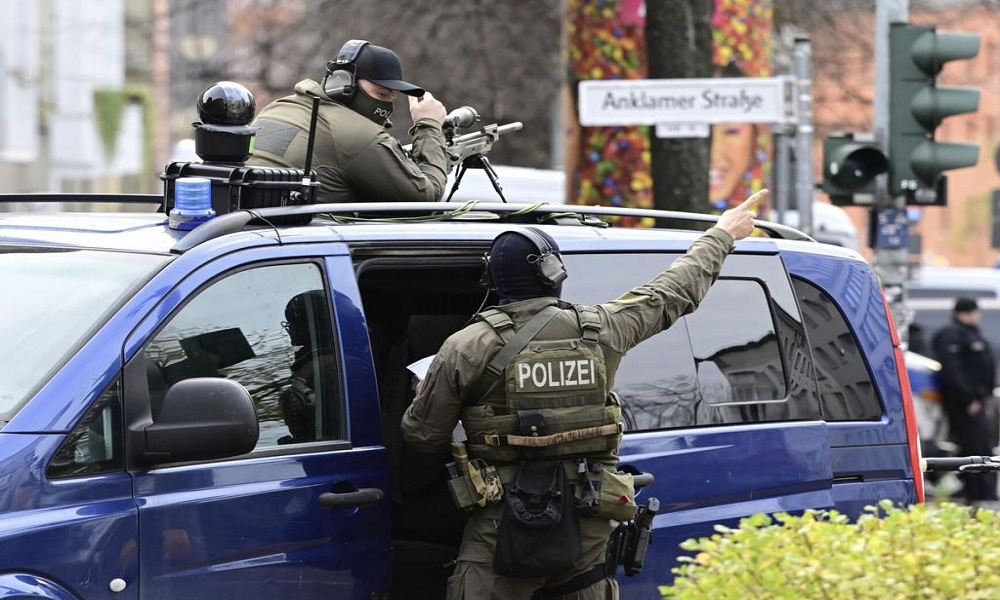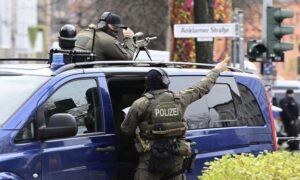
GERMAN – Across Germany, in schools, city halls, synagogues, churches and parliament, people were coming together Thursday to commemorate the 85th anniversary of Kristallnacht or the “Night of Broken Glass” in which the Nazis terrorized Jews throughout Germany and Austria.
Chancellor Olaf Scholz and Germany’s main Jewish leader, Josef Schuster, were set to speak at an anniversary ceremony at a Berlin synagogue that was attacked with firebombs last month.
The commemoration of the pogrom comes at a time when Germany is again seeing a sharp rise in antisemitism following Hamas’ brutal attack that killed 1,400 people in Israel on Oct. 7 and triggered an ongoing war in Gaza.
“I was there during Kristallnacht. I was in Vienna back then,” Holocaust survivor Herbert Traube said at an event marking the anniversary in Paris on Wednesday.
“To me, it was often repeated: ‘Never again.’ It was a leitmotif in everything that was being said for decades,” Traube said, adding that he is upset both by the resurgence of antisemitism and the lack of a “massive popular reaction” against it.
On Nov. 9, 1938, the Nazis killed at least 91 people and vandalized 7,500 Jewish businesses. They also burned more than 1,400 synagogues, according to Israel’s Yad Vashem Holocaust memorial.
Up to 30,000 Jewish men were arrested, many of them taken to concentration camps such as Dachau or Buchenwald. Hundreds more committed suicide or died as a result of mistreatment in the camps years before official mass deportations began.
Kristallnacht was a turning point in the escalating persecution of Jews that eventually led to the murder of 6 million European Jews by the Nazis and their supporters during the Holocaust.
While there’s no comparison to the pogroms 85 years ago, which were state-sponsored by the Nazis, many Jews are again living in fear in Germany and across Europe, trying to hide their identity in public and avoiding neighborhoods that were recently the scene of violent, pro-Palestinian protests.
Jews in Berlin had the Star of David painted on their homes, and Jewish students in schools and universities across the country have experienced bullying and discrimination.
The German government has been one of Israel’s staunchest supporters since the Oct. 7 attack, and Scholz and other leaders have vowed to protect Germany’s Jewish community.
Still, Anna Segal, the manager of the Berlin Jewish community Kahal Adass Jisroel, which was attacked last month in an attempted firebombing, told The Associated Press that not enough is being done to protect them and other Jews in Germany.
She said the community’s 450 members have been living in fear since the attack and that authorities have not fully responded to calls to increase security for them.
“The nice words and the expressions of solidarity and standing by the side of the Jews — we are not very satisfied with how that has been translated into action so far,” Segal said. “I think there is a lack of a clear commitment that everything that is necessary is invested in the security of the Jews.”

